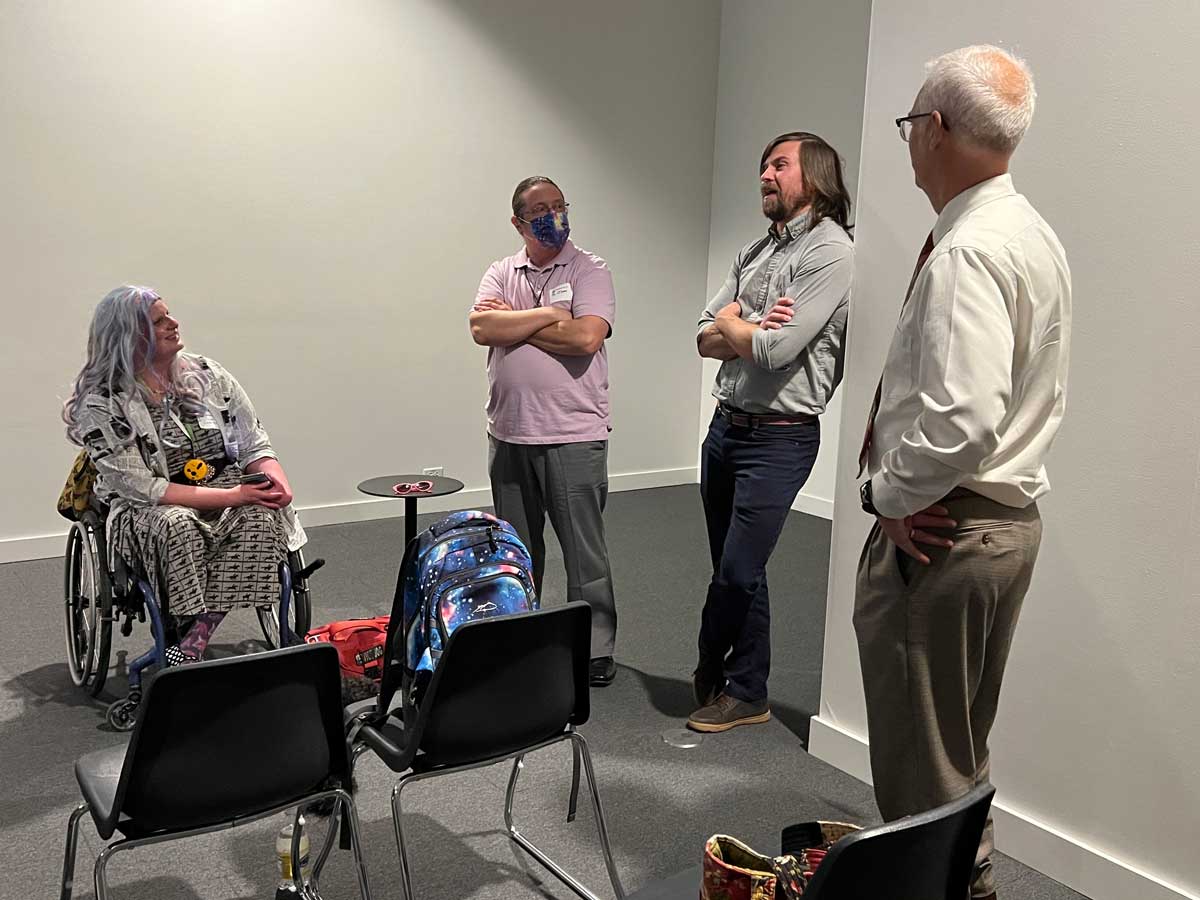French photographer to discuss her journey into the heart of American capital punishment
LOGAN, Utah — A French photographer who has spent several years documenting the people whose lives and livlihoods are centered around the ceaseless churn of executions in Texas will be the second Morris Media & Society lecturer of 2016.
Caroline Planque will present on her work at 12:15 p.m. on Monday, April 25 in Room 154 of the Merrill-Cazier Library at Utah State University.
Planque first became interested in the lives of people who are impacted by capital punishment in the United States while attending college in Austin. Since the reinstatement of the dealth penalty following a four-year moratorium ending in 1976, Texas has executed more people than any other state.
This will be Planques’s first speaking engagement in Utah, which was the first state to execute a prisoner, following the lifting of the ban by the U.S. Supreme Court, when convicted murderer Gary Gilmore was put to death by firing squad on Jan. 17, 1977. On that same year, an agricultural laborer and convicted murderer named Hamida Djandoubi was the last person to be executed in France.
Intrigued by her adopted country’s persistent support of capital punishement even as most other nations turned away from state-sponsored executions, Planque traveled to West Livingston, where Texas’ death row is located.
“I quickly met many people and personalities which opened my eyes to the daily reality of the dealth penalty,” she said.
Morris Media & Society Lecture Series facilitator Matthew LaPlante said Planque’s views are valuable for people in Utah, where the state Senate recently voted to abolish capital punishment. The House declined a vote on the bill before the annual legislative session ended in March, however, leaving the nine men on Utah’s death row still eligible for execution.
“When we consider capital punishment, we tend to wrestle with the question of what is jusice for murderers, their victims and their victims’ families,” LaPlante said. “What Caroline Planque’s work demonstrates is that the human impact is far more extensive than that.”
Planque has interviewed and photographed parents, partners and siblings of death row inmates, as well as chaplains, pen pals, witnesses and wardens.
“Caroline Planque has certainly come to her own conclusions about the righteousness of this system,” LaPlante said. “You certainly don’t have to come to the same conclusion, but given that we live in a democratic society that employs death as a punishment, I do believe we are morally obligated to confront this part of the story.”
The Morris Media & Society Lecture Series is facilitated by Utah State’s Department of Journalism and Communication, and supported by an endowment from DeAnn Morris in honor of her late brother, former journalism professor John Morris. In deference to a man who has been described as “a chain-smoking, tough-talking, beer-drinking Westerner,” the department invites speakers who challenge convention, stoke discussion and offer subversive viewpoints.
Past Morris lecturers have included National Public Radio reporters Anne Garrels and Mandalit del Barco, former Salt Lake City mayor and third-party presidential candidate Rocky Anderson, and CNN.com reporter Jessica Ravitz. The first Morris speaker of 2016 was political cartoonist and Pulitzer Prize finalist Pat Bagley.
Planque’s lecture is free and open to the public.
Matthew D. LaPlante
assistant professor of journalism
Utah State University
matthew.laplante@usu.edu
www.mdlaplante.com



